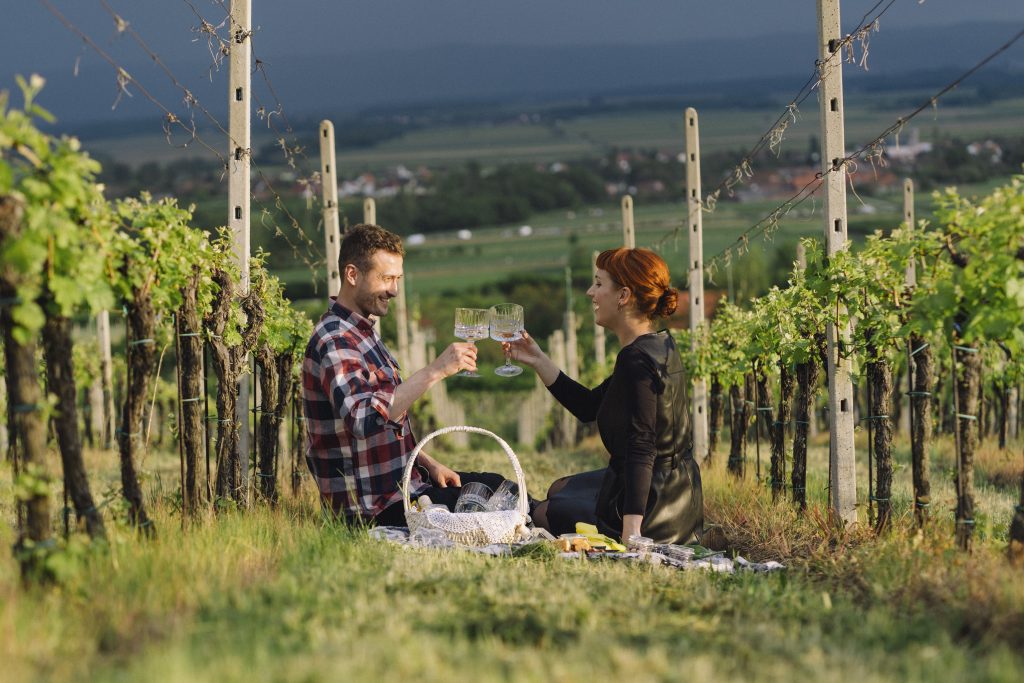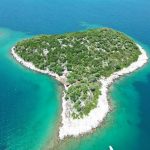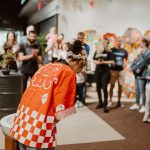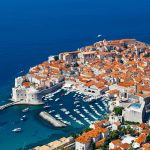This young married couple worked in marketing and law in Zagreb, jobs they loved, but they decided to return and chase their dreams in their tiny home village of Kaptol near Požega. And they are doing so while sipping on some top-quality Slavonian gin. We spoke to them to find out how they do it, what inspired them to go gin instead of rakija, and why everyone should consider at least visiting Slavonia.
Introduce the people of Castrum and tell us about its visual identity.
We are Iva and Mihovil, a young married couple who started producing craft gin a year and a half ago in a small town at the foot of Papuk, Kaptol. Mihovil is a lawyer by profession, and I am an economist. Although we loved the jobs we did in Zagreb, we decided that we would prefer to live in a quieter place in the future. We both come from Slavonia, and Mihovil has been involved in the production of wine and brandy with his parents since he was a child, so distillation was a familiar concept to him before we ever decided to run a business with distillates.
Castrum is the name for two types of gins we produce – London dry gin and Barrel-aged gin. Its name was inspired by the medieval fortress that dominates Kaptol, whose shape is called a castrum. The shape of the fort is hexagonal with four associated towers, which we also used for the shape of our label. The logo mostly reminds people of lace, but it’s actually a faler – an ornament from the horse bridles of Hallstatt warriors who lived above Kaptol in the early Iron Age. Falers were excavated precisely at the Kaptol-Čemernica archaeological site near our distillery.
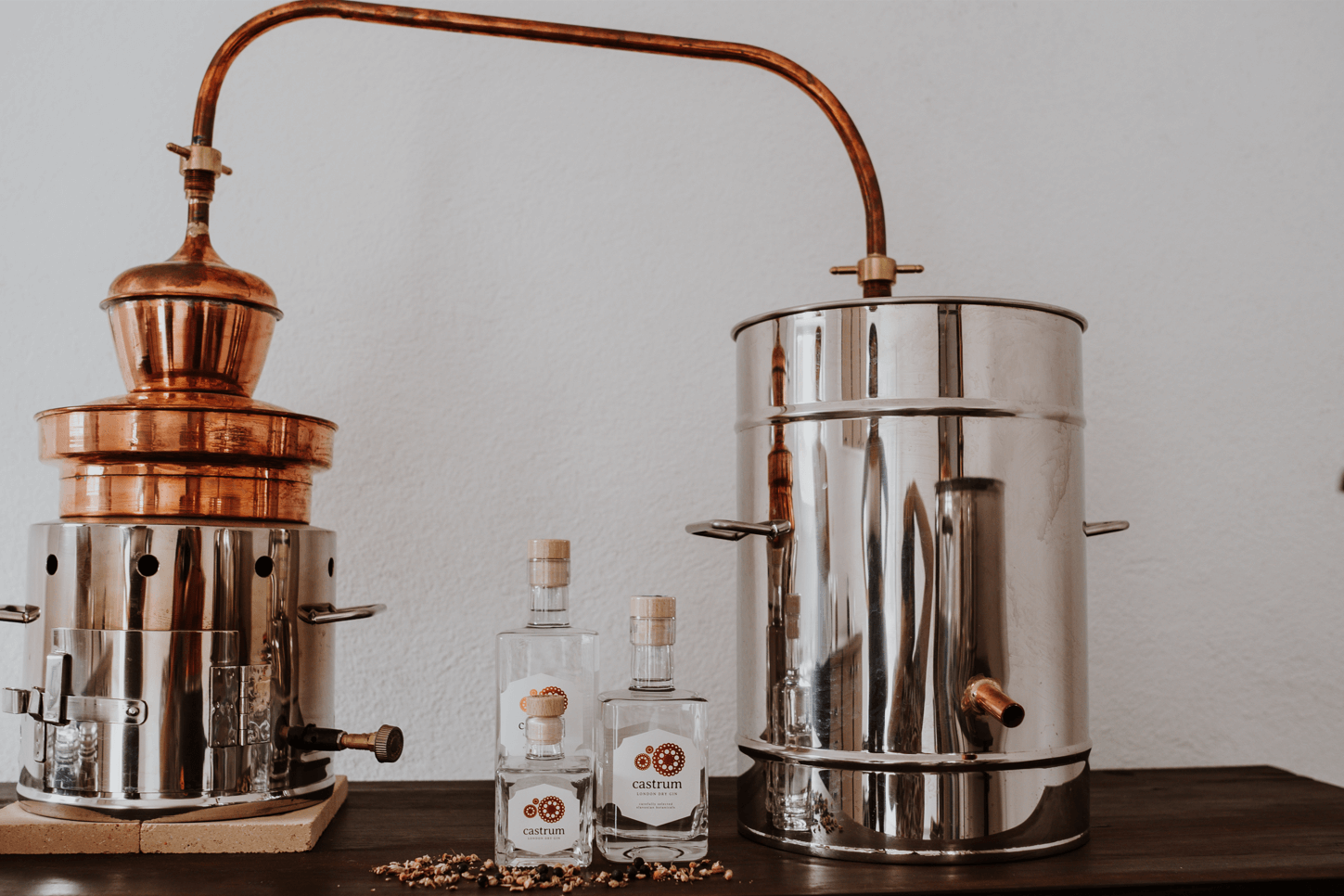
What inspired you to produce gin and not a more traditional drink like rakija? Tell us about your journey.
Gin is a drink we have both loved for a very long time, and we have tried many different types and brands. As for gin as our first distillate choice, it was carefully chosen. When we started thinking two and a half years ago about doing something that would allow us to make a decent living in Slavonia, we knew we needed an idea that would set us apart somehow. The idea of gin was born – precisely because it would be a somewhat “logical” sequence if we started to produce rakija in Slavonia and moved back from the big city, but I’m sure the whole story then wouldn’t have been half as interesting.
Some new products are coming, which and how will they be special?
We plan to produce two types of rakija, quince and viljemovka, but before that, we will market pelinkovac (bitter wormwood liqueur) with an interesting name. That one will also be interesting due to ingredients associated with Slavonia, which are not typical for pelinkovac itself. We have a great desire to age a real Slavonian whiskey as well.
You have a gin garden; how does that work? Where do your visitors usually come from?
Our entire distillery is housed in an extension of my husband’s parents’ home. Since we would also sell our gin there, we created a small cozy area in the basement with a table and six chairs where our guests can sit when they come to shop or for a tasting. At that time, we did not think that a larger group of people would want to visit; we predicted it in the distant future, but it came very quickly. Since we still need to design a larger space for tastings, we came up with the idea of a gin garden during summer. Then the entire lawn in our backyard is occupied by pallets and old things from our grandparents’ houses – armchairs, sewing machines, old irons, etc. It is a unique experience in the evening since the whole setup is between apple and pear trees, where we hang fairy lights, which makes it beautiful in the summer evenings. The gin garden opens when the temperatures make spending time outdoors comfortable, usually from the end of May until mid-September. Visitors come to us from all parts of our beautiful country, mainly from Zagreb. We are glad our location is becoming a top choice for weekend trips. There are many tourists in summer, but their number increases significantly in autumn and spring.
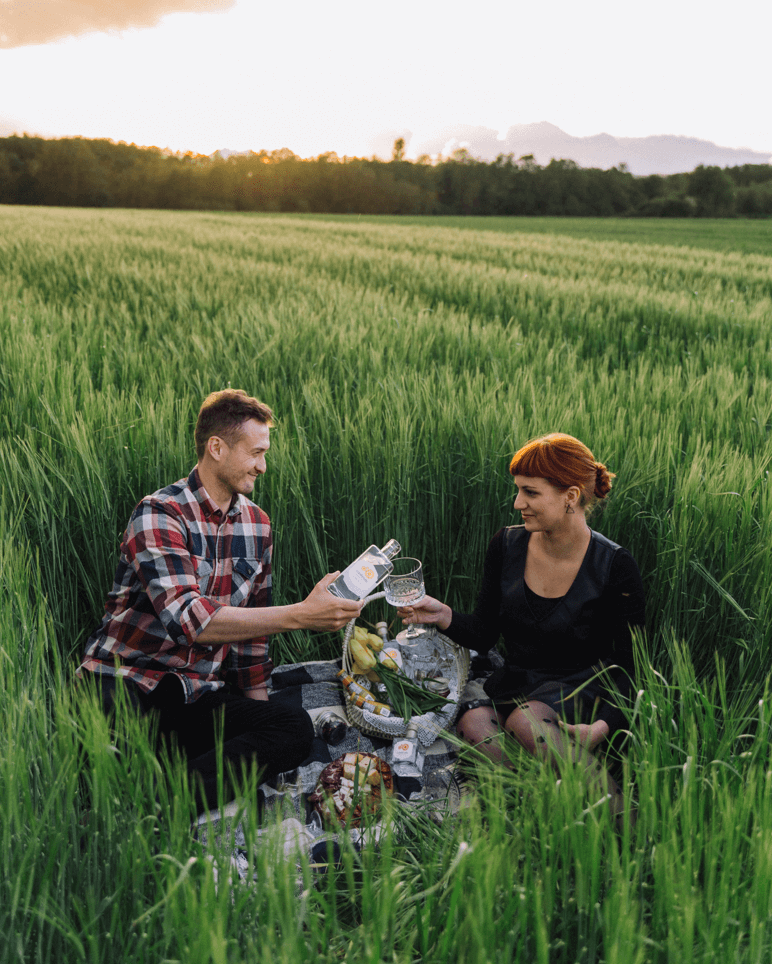
How did the fact that you are located in the east of Croatia affect your business?
It had a favourable effect on us, probably because, by returning to Slavonia, we were able to place a very trendy drink on this market, which also quickly found its place under the sun due to its quality.
You are a marketing expert. It seems that Castrum and Slavonia are an inseparable duo. Tell us about this symbiosis.
Ah, Slavonia without Castrum as a gin brand has indeed existed all this time, but a castrum has been standing there since the Middle Ages! During our brand design, we were guided by the idea that our entire product would tell a story – from the ingredients themselves to the connection with the location. I believe that to be very important, it gives personality to the brand, and people connect with it more easily. We produce gin in Slavonia, so we made sure to use ingredients that are characteristic of the area. In our gins, those are elderberry, black mulberry, and grapevine. By returning to Slavonia, we also wanted to work on promoting our destination. I think that by connecting branding with history, we have created a wonderful symbiosis that ultimately offers a tourist experience.
Tell us about tourism in that part of Slavonia – is there tourist potential, and why should everyone visit?
There is significant tourist potential here, and I am glad that this potential is being exploited more and more. Many people have visited our distillery from all parts of Croatia, as well as from abroad. We are happy to host ‘our’ people, who went to Germany, Austria, Switzerland, and even Sweden to earn their living. They somehow get particularly emotional since they wish they could have stayed in their hometown and done something which would provide them with a good life.
There are many reasons why to visit Slavonia. Untouched nature is undoubtedly one of them. The forest park Jankovac is beautiful in all seasons; there are so many cycling and walking paths; our entire region is full of excellent wines and wineries that everyone should visit. There are also many educational places, and there is plenty of content for the youngest.
Having come back, we completed the story of the “return” of our entire team. We were eight enthusiasts who wanted to show our area to more people. We all lived outside Slavonia at one point, and some even on another continent. We designed the event “Ideš i piješ” (Drink as You Go), which works according to Wine and Walk principles. Participants walk 12 kilometers through Papuk and meet local winemakers and distillers. This year was the second in a row, and we can say that the interest is huge. Registration fees were sold out in just ten days, and our inbox was full of questions about whether other places would be open. Slowly but surely, Slavonia is finding its place on the must-visit map. I think that the pandemic also contributed to this. We were limited in terms of travel, so we turned to travel in our own country. At least something beautiful came of such an ugly crisis.
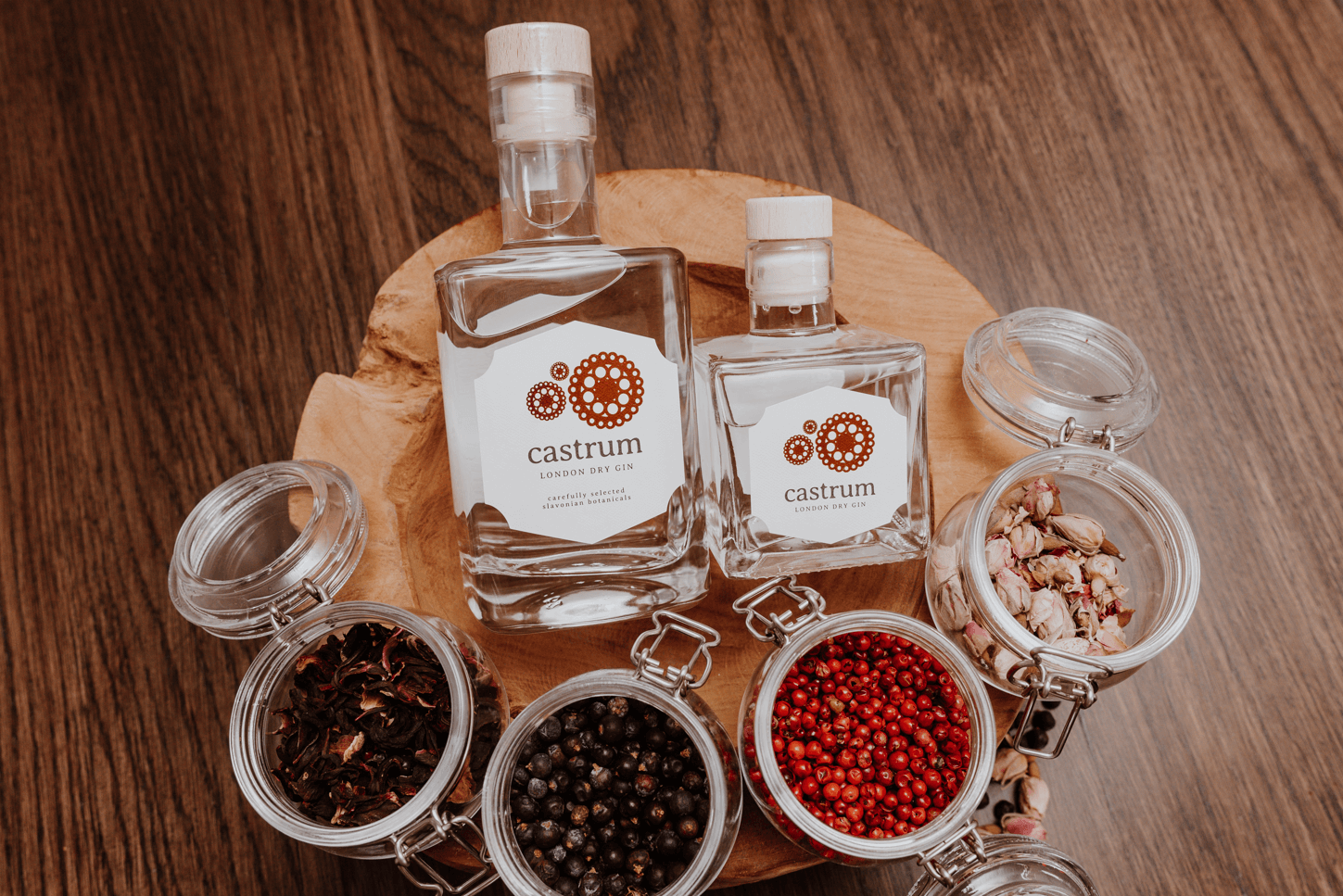
Where can we find you and your product, how long does delivery take? Are we late for Christmas shopping?
So far, we have yet to enter large retail chains, so our products can be found in smaller specialised stores. A list of them can be found on our website, through which our products can be ordered. Delivery takes 1-3 working days. Of course, that deadline could be extended these days by a day or two. As for being late for Christmas shopping, I think it’s never too late for good presents!
For more, make sure to check out our dedicated Lifestyle section.

